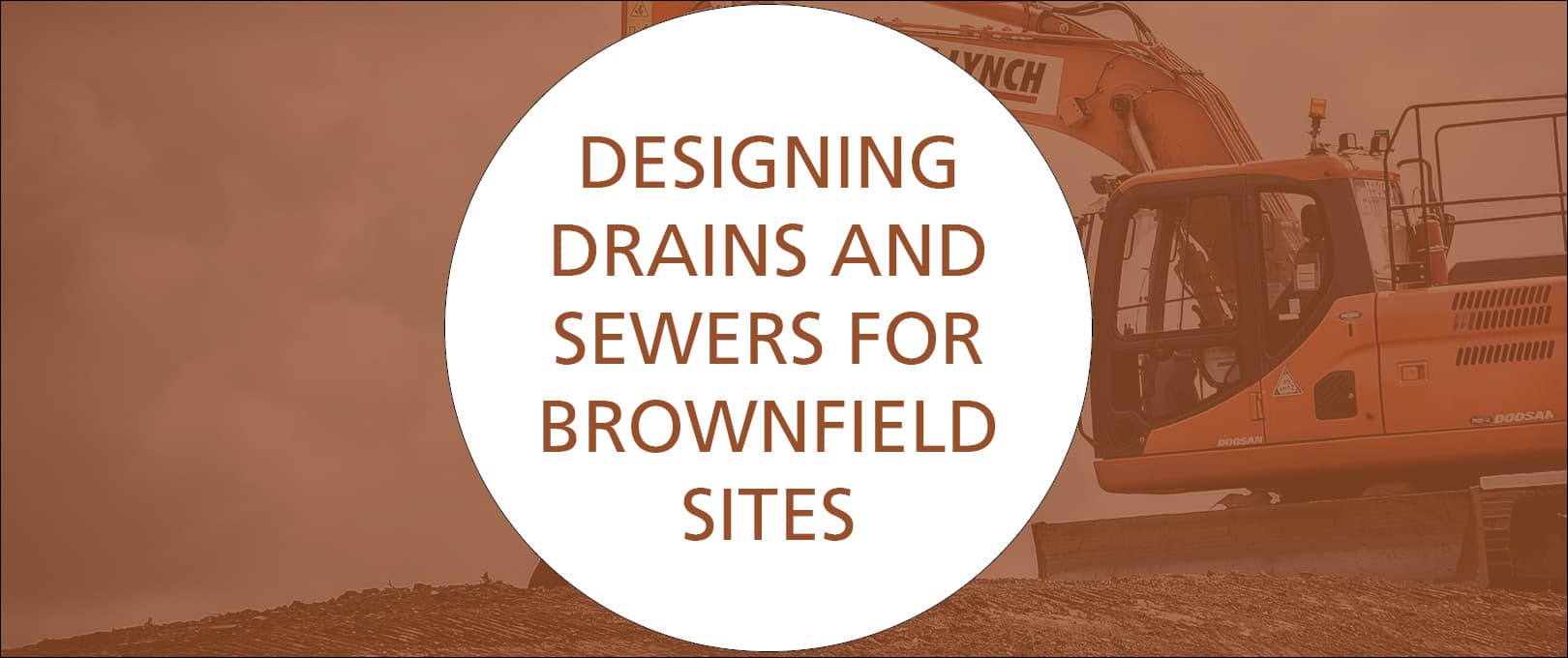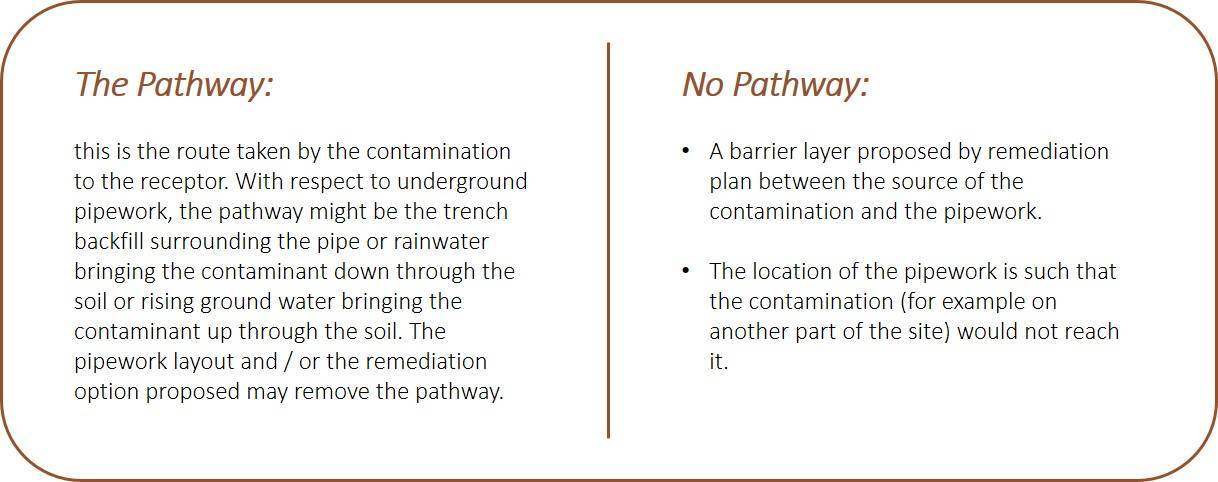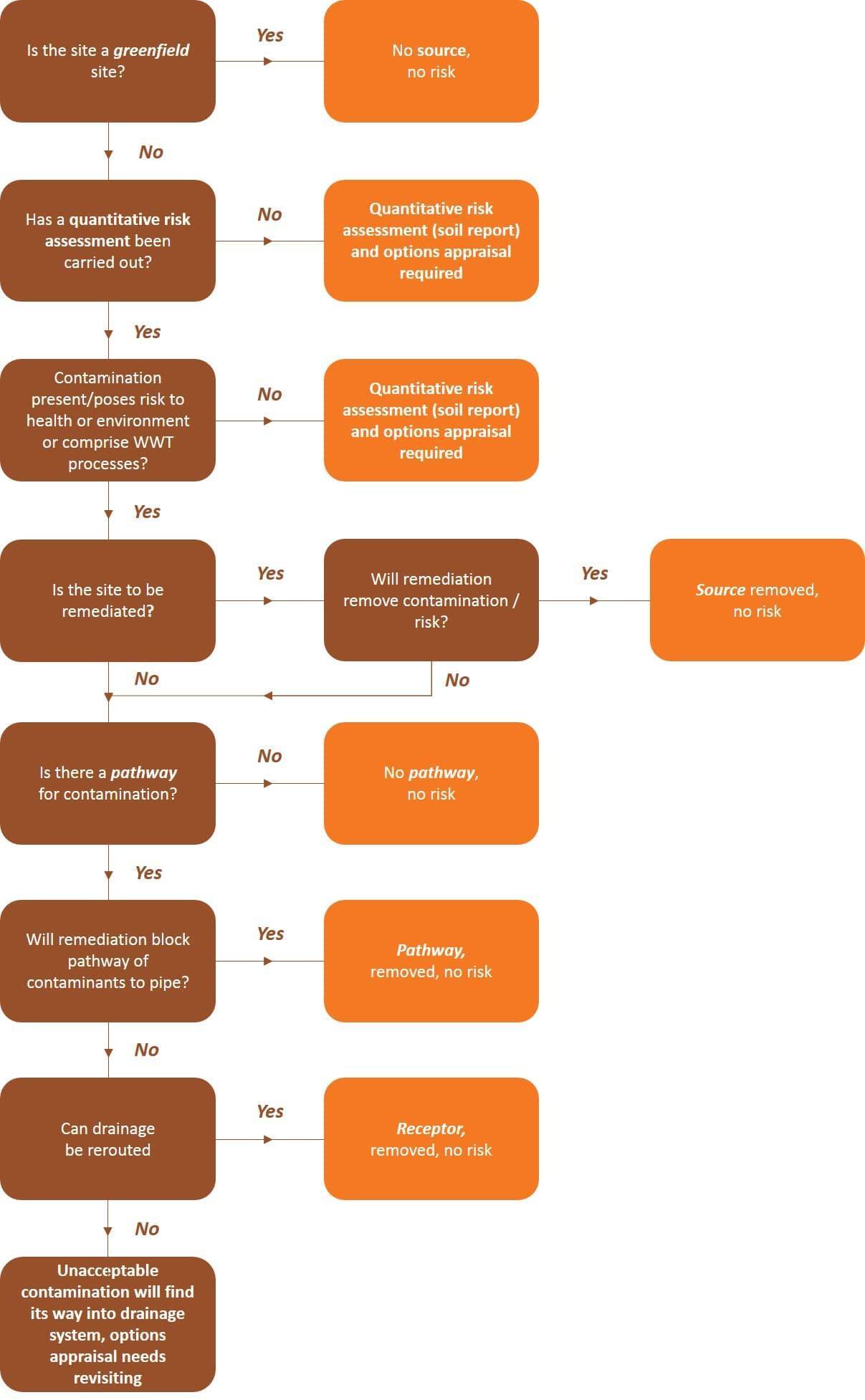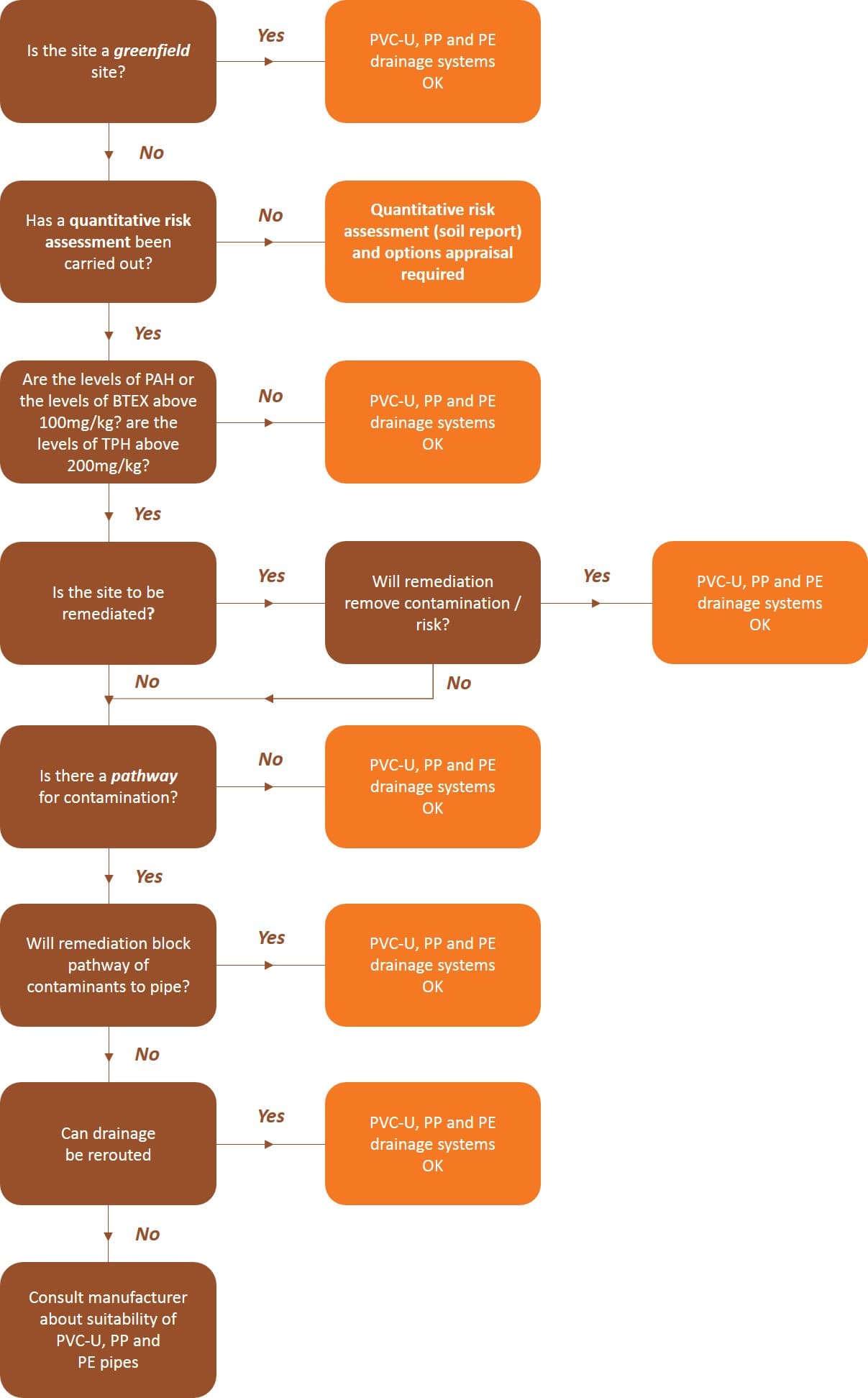Drainage
At Polypipe, our product portfolio includes the UK’s largest range of sewer pipe, fittings and chambers for all Commercial and Residential projects.

A variety of legislation is relevant to the management of land affected by historic contamination (i.e. brownfield sites). Contamination is a material planning consideration – regional or local planning authorities can require assessment of the land and set conditions for the site to be made suitable for intended use. In addition, the Environment Agency and the devolved administrations in Wales, Scotland and Northern Ireland can require risk assessment and mitigation to protect water quality and discharge to rivers.
Plastic pipes and inspection chambers for the construction of gravity drains and sewers have been widely used for many years in the UK and are, in most cases, suitable for use on both brownfield and greenfield sites.
This guidance note provides additional information to pipeline designers and developers selecting and installing plastic pipes for drains and sewers.

Designing and Selecting a Pipeline
When preparing to lay a drain or sewer through a brownfield site, there are two factors to consider:
Ingress to pipework
The risk of contamination is usefully described by the SOURCE - PATHWAY - RECEPTOR model.
If any one of these elements is missing, then there is no risk of contamination entering the pipework.
Further consideration does not need to be given to potential ingress into the pipeline.



The following flow diagram can be used to consider whether any remaining contaminants in the soil could find their way into the pipework and impact unacceptably on a water course (surface water drain / sewer) or the treatment works (foul water drain / sewer).

Sustainability of materials for drains and sewers
The assessment of brownfield sites typically identifies chemicals which remain because of the former use of the site. For example, chemical, pharmaceutical, and pesticide manufacture; foundries, engineering and printing works; gas works, filling stations and food processing.
With knowledge of the former use, soil surveys will be made to measure the presence of chemicals such as:


Sustainability of materials for drains and sewers
Plastic pipes for drains and sewers are manufactured from unplasticized poly(vinyl chloride) (PVC-U), polypropylene (PP) or polyethylene (PE).
These materials are naturally resistant to inorganic compounds such as acids and alkalis, sulphides, chlorides, sulphates or cyanide. Their properties will not be affected by the presence of metals in the soil.
Where organic compounds are shown to be present in the soil, the following flow diagram can be used to consider whether they would affect the use of plastic pipes for drains and sewers. In cases where there could be an impact, amendment of the remediation plan before work commences to remove the source of the contaminant or the pathway to the pipework may often allow plastics pipes to continue as the material of choice.

For more indepth information, please visit: BPF Pipes Group
At Polypipe, our product portfolio includes the UK’s largest range of sewer pipe, fittings and chambers for all Commercial and Residential projects.